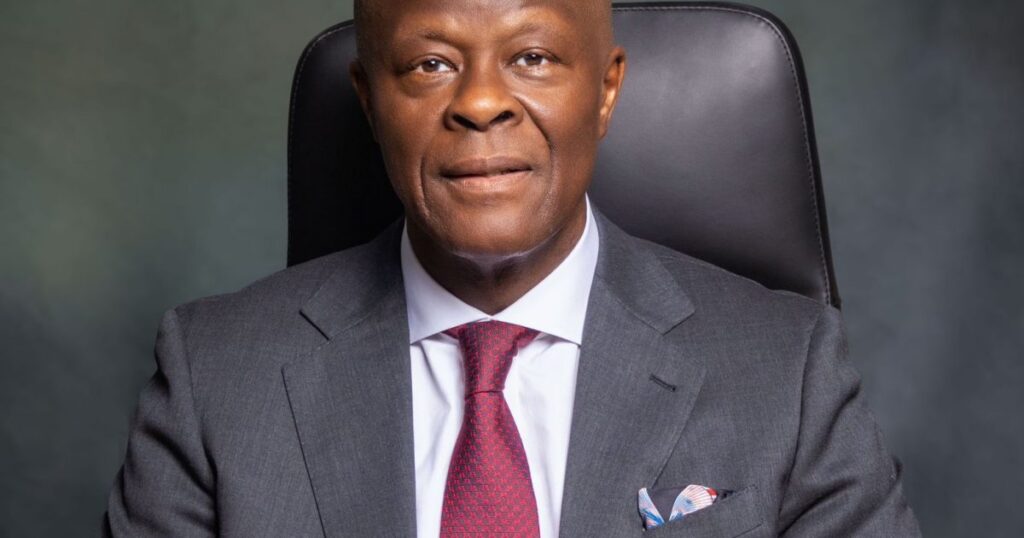The Minister of Finance and Coordinating Minister of the Economy, Wale Edun, has assured that the Federal Government will maintain open consultation with business leaders and stakeholders ahead of the implementation of the new Tax Acts in 2026.
Speaking at the first edition of the Government-Private Sector Dialogue Series: South East Finance and SMEs Growth Roundtable, Edun said the Tinubu administration was committed to reforms that would make Nigeria’s fiscal environment more transparent, efficient, and fair to all participants.
Edun also disclosed that the new tax laws had been finalised and would take effect from January 1, 2026. According to him, the Tax Acts were the result of collaboration among the executive, legislature, judiciary, professionals, and the general public.
“The dialogue that you ask for, I can assure you, will play a big role,” he said. “There needs to be dialogue. There must be dialogue. Even the feedback we are hearing here today shows the need for more explanation and clarification.
And when it comes to major reform, it’s all about timing, sequencing, and consultation.”
He said the government’s economic reforms were already yielding results, noting improvements in the foreign exchange market and petroleum pricing systems.
“You know what it was. You know what it is. Now, we have more of a level playing field, more of a willing buyer, willing seller market, market pricing of petroleum products, and market pricing of foreign exchange,” he said. “This relieves you of what you had to do before to import.”
He explained that the objective of the new framework is to make Nigeria’s tax system fairer, clearer, and more efficient, while widening the tax net and reducing multiple payment points.
“The aim is to make the system fairer, to make it clearer, to make it more efficient, and of course to spread the net as wide as possible so that everybody gets a chance to contribute accordingly,” Edun said.
The minister added that the government was also working on a National Single Window Project to improve trade facilitation. The initiative, he noted, would be launched in the first quarter of next year and would employ automation, digitisation, and artificial intelligence to simplify trade processes.
“The idea is to use automation, digitisation, and artificial intelligence to improve the processes and speed them up,” he said.
He assured the business leaders that the dialogue on tax reform and trade facilitation would continue, adding that many stakeholders had already called for the reforms to be sustained and strengthened.
“This is an ongoing dialogue,” Edun said. “There have been participants here who want to see this effort sustained, continued, and even built upon. I congratulate you, and you have our support anytime, any day.”
Also, speaking at the event, the Minister of State for Finance, Dr Doris Uzoka-Anite, described President Bola Tinubu as the most business-friendly president Nigeria has had in recent history.
Uzoka-Anite said the administration’s economic reforms and private sector policies clearly show the President’s determination to make Nigeria a leading destination for investment.
“President Tinubu is the most business-friendly president Nigeria has had in recent history,” Uzoka-Anite said. “He has given us a clear directive to work hand-in-hand with the private sector to remove every obstacle standing in the way of enterprise growth.”
She said the government’s Renewed Hope Agenda was more than a policy framework, describing it as a social contract aimed at rebuilding confidence, stimulating productivity, and driving a private-sector-led economy.
The minister of state listed several ongoing initiatives to improve access to finance through the Bank of Industry, the Development Bank of Nigeria, and the Presidential Initiative on Consumer Credit. She described SMEs as “the engines of Nigeria’s economic revival.”
On infrastructure, Uzoka-Anite said projects linking the South-East to other parts of the country, including the Enugu–Onitsha Expressway, Second Niger Bridge access routes, and Onitsha–Owerri corridor, were receiving renewed attention to support trade and logistics.
“While government can design policy, it is entrepreneurs like you who will build the future,” she said. “Your innovation, networks, and resilience are the true engines of growth.”
The minister reiterated that the government was committed to regular engagement with the private sector through the new dialogue series, which would help identify challenges, shape policy, and strengthen collaboration.
“When government opens its doors to dialogue, it sends a clear message that policy is not made for the people, but with the people,” she added.
Addressing complaints about the operations of the Nigeria Customs Service, the Customs Area Controller, Apapa Command, Emmanuel Oshoba, urged importers to be truthful in their documentation and embrace the opportunities provided to boost their businesses.
“The other is innovation. We have innovative solutions on the ground that you are not taking advantage of. The first one is the ruling system. Most of you have issues at the port because you have issues with your documentation. We have provided an avenue where, before you even make your importations, once you have your invoice, you can approach Customs for a ruling on classification and valuation. We will give you the ruling, and it’s legally binding on us. By the time you bring your goods in, the process is seamless.
“Most of you are not taking advantage of it. My doors are open. If you need further enlightenment on this, please approach us. We will direct you accordingly. Let us be partners in progress, collaborators. We are not here to antagonise each other.”















